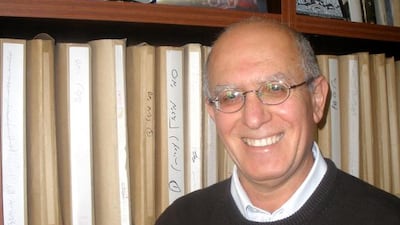“There were not many years of good times in Baghdad,” says Reuven Snir, a professor of Arabic literature at the University of Haifa with Iraqi-Jewish roots. “Most of the time it was tragedy and pain and destruction.”
That’s what strikes him, he says, when he looks over the 170 or so poems he translated into English and collated into an anthology that was published in October. Baghdad: The City in Verse begins with poems written in the eighth century, when the city became the centre of the Islamic Golden Age, and concludes with work written this earlier this year.
In between, the city has been sacked by Mongols, captured by the Ottomans and the British and invaded by Americans. The city’s reign as a world powerhouse for science and culture lasted only a few centuries, but has been kept alive in poetry throughout that 1,000-year span. “Baghdad is an easy metaphor for revival and eclipse,” writes Abdul Kader El Janabi in the book’s afterword. In poets’ imaginations, he says, it is “the city of dreams”.
Nostalgia and loss are there in the collection, but there’s also the entire spectrum of human experience, from poets who are Bedouin, Muslim, Christian, Kurdish and Jewish. One 13th-century author complains that Baghdadis are too self-involved for good conversation. A poet working during Baghdad’s heady earliest years writes: “People say, Do you want to make the pilgrimage? Of course / I say, only after Baghdad’s delights expire”, and another mocks those who eulogise Baghdad’s cool evenings: “A slight comfort after great agony / and people say at once: What a paradise!” The complicated, contradictory city that emerges is so vivid you can almost smell the jasmine and the dust.
Recently, Snir’s email inbox has been full of poems about Baghdad from Iraqi writers that he hadn’t yet encountered; as a result, he’s thinking about publishing a follow-up book. He’d also like to publish the first collection – most of which had never been translated into English – in its original Arabic. Most of these poets spent their childhoods in Iraq, but are living now in such cities as Stockholm, Paris and New York. “They know they won’t be able to return,” he says. “This book revives their memories.”
• Baghdad: A City in Verse (Harvard University Press), translated and edited by Reuven Snir, is out now

